Why Croatia Is Europe’s Top Sailing Playground
With more than 1,000 islands, crystal-clear waters, and world-class marinas, Croatia is a sailor’s paradise. Whether you’re chartering a yacht from Split, Trogir, Dubrovnik, Šibenik, Zadar, or Pula, the Adriatic offers a perfect mix of calm seas, ancient towns, and Mediterranean charm.
If you’re planning your first sailing adventure, these ten insights will help you navigate Croatia’s coast like a pro, from local etiquette to mooring know-how.
Croatia Uses the Euro & Keep Some Cash for Marinas and Islands
Since January 2023, Croatia has been using the euro (€). Credit cards are widely accepted in towns and most restaurants, but there are still exceptions, especially in smaller island taverns and city ports where payment is often cash-only.
When withdrawing cash, use only ATMs of local Croatian banks, such as PBZ (Privredna banka Zagreb), OTP Banka, HPB, Raiffeisen, or Erste Bank. Independent “blue box” ATMs often charge very high withdrawal fees and offer poor exchange rates.
You’ll find ATMs on many islands, but they can run out of cash in peak season, so it’s smart to prepare euros before you set sail.
💡 Tip: Keep a mix of small bills for mooring fees, buoys, and island konobas that don’t accept cards.
Entry Rules Vary for Non-EU Travelers, Check Before You Go
Croatia is part of the Schengen Area, which means entry requirements depend on your nationality. Many travelers from non-EU countries can enter visa-free for up to 90 days, while others require a visa before arrival.
Because rules differ by passport, always check the official guidance from the Croatian Ministry of Foreign and European Affairs before your trip. It provides up-to-date information on visas, permitted stays, and the travel documents required to enter Croatia.
Charter Life 101 — Licenses, Deposits & Check-Ins
For bareboat charter in Croatia, the skipper must possess sailing and navigational experience adequate to the boat size and tonnage to charter a bareboat sailing yacht, catamaran, or motorboat in Croatia. In addition to experience, you need a skipper qualification/license.
In addition to skipper qualification, the VHF license is required. The VHF license can also be held by a crew member. To check if your license is adequate for a bareboat yacht charter in Croatia, please send us the license scan by email or check the Recognized certificates for operating boats and yachts.
Before your arrival, you will receive the base information, including the destination address and instructions on how to locate and reach the yacht charter base where your boat will be waiting for you.
Ensure you bring the original copies of your passport or ID, as well as your skipper’s license, which is required both during check-in and while sailing. Please submit the crew list before your arrival to expedite check-in.
During check-in, you will need to leave a security deposit for the boat or opt for a damage waiver (if offered by the charter company). You will also need to pay the tourist tax and any extras, if applicable.
⚓ Captain`s tip: How to protect your security deposit?
Provisioning Made Easy, But Plan for Islands
Marinas near Split, Trogir, Šibenik, Dubrovnik, and Zadar have excellent supermarkets for provisioning. Once you’re island-hopping, options narrow down, so stock up before departure. There are markets and shops on the islands, but it's easier to prepare in advance. As an alternative, if you want to save time and energy, you can order the food provisioning and delivery through Jam Yacht Supply.
🍅 Try local: Visit markets for fresh produce, olive oil, and cheese, local flavors that make every onboard meal better.
Mooring Fees and Marinas, Expect to Pay for Comfort
Croatia’s marinas are clean, secure, and efficient, but nightly fees apply.
Expect €80–€100 for a 40-foot yacht in high season in marinas. For catamarans, the prices increase by 50-100%. City ports can be a bit more affordable, and mooring buoys.
💶 Save money: Anchor in safe bays or dine at restaurants offering “berth-with-dinner” deals, a local favorite among sailors.
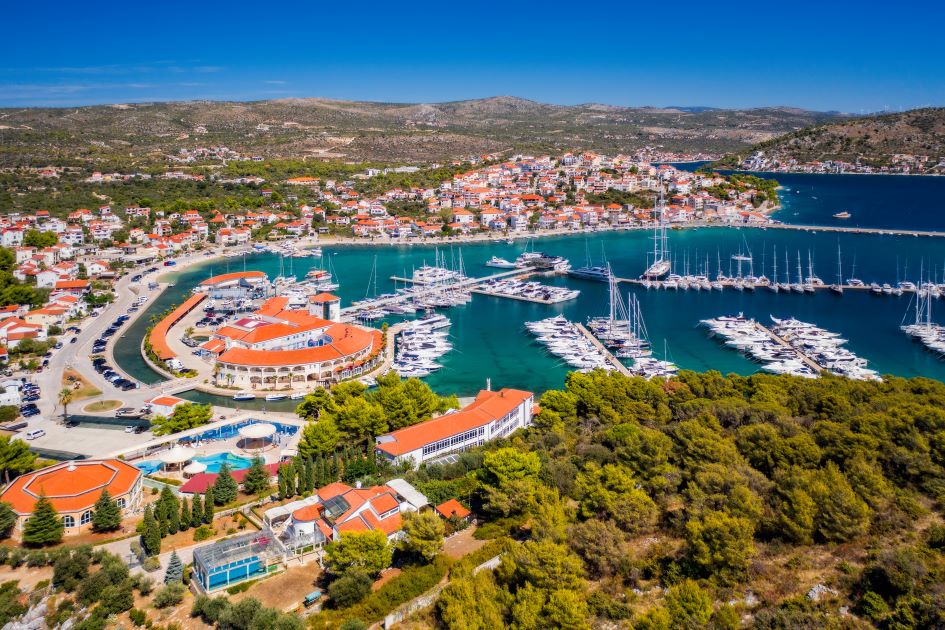
Marina Frapa, Rogoznica
Sailing Conditions: Calm, Reliable, but Respect the Wind
The Adriatic is famous for gentle conditions, yet local winds can surprise. The Maestral offers a perfect afternoon sail, while the Bura can arrive suddenly with strong gusts.
🌬️ Always check forecasts (“prognoza”) before departure, local apps like Windy or Meteo.hr are reliable.
The best Apps for sailing in Croatia
Electricity, Water & Connectivity at Sea
Marinas and organized moorings have 230V power (Type C/F plugs) and freshwater refills. When anchoring, conserve power and charge devices during marina stops.
📶 Stay connected: A local eSIM or prepaid SIM keeps navigation apps and weather updates online, and coverage is excellent along the coast. On most yachts, if not on all, there is a WiFi.
Tips for Sustainable and Eco-friendly sailing.
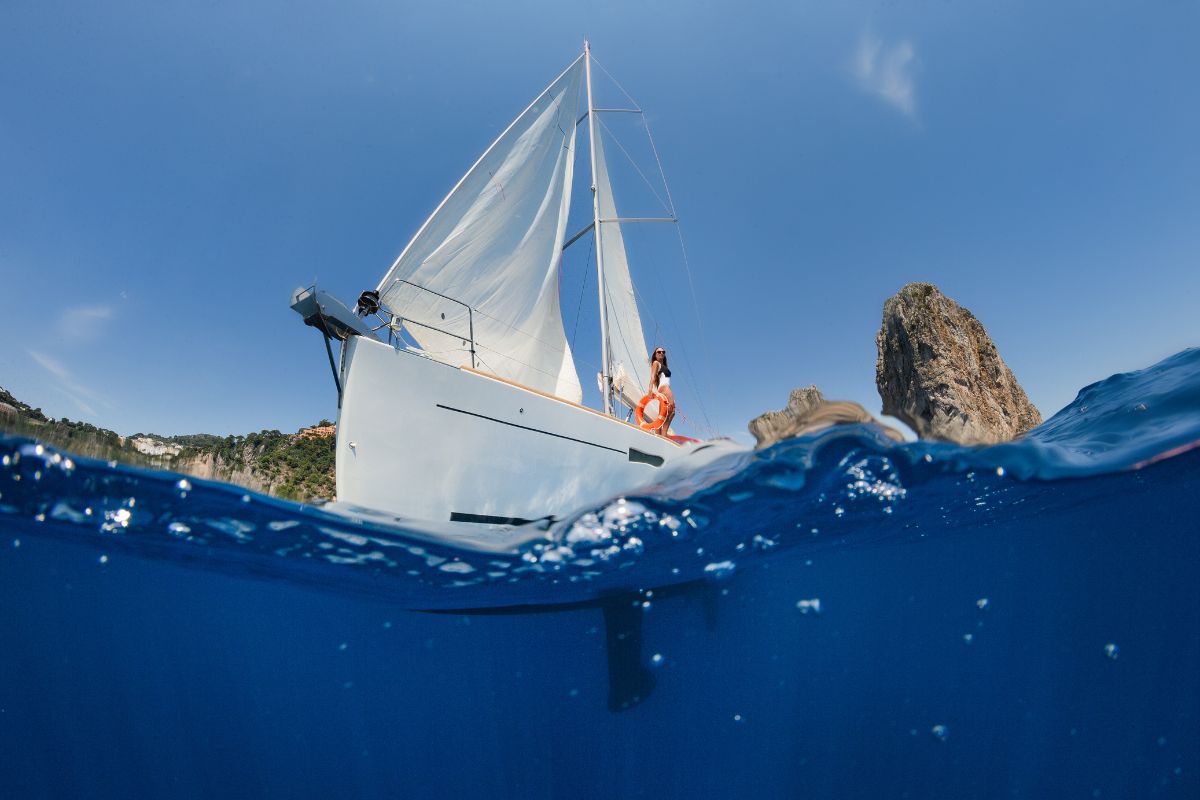
Island Rhythm; Slow Down and Say “Hvala”
Each island has its own rhythm: Hvar for nightlife, Vis for history, Šolta for tranquility, and Lastovo for wilderness.
💬 Learn a few local words: “dobar dan” (good day) and “hvala” (thank you); they go a long way.
🍷 Local secret: Order house wine or rakija at taverns; it’s often homemade and surprisingly good.
Poje Hvar, Authentic Cooking Calss
Beaches and Bays, Not Always Sandy
Most beaches are pebble or rocky, so bring water shoes and a dry bag for swimming stops. Pack a quick-dry towel and reef-safe sunscreen; they’ll earn their space onboard.
TIPS: What to pack for a sailing holiday?
🌅 Bonus: Many stunning coves are only reachable by boat, so early morning swims often feel completely private.
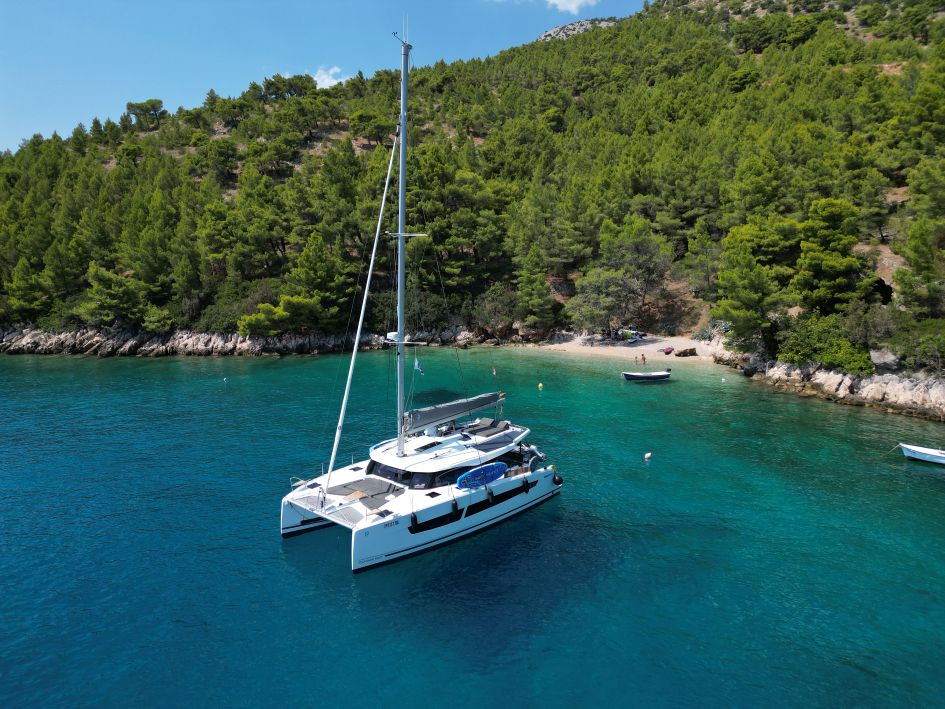
Croatia Is Safe, But Don’t Leave Gear Unattended
Croatia is one of Europe’s safest sailing destinations. You’ll feel comfortable in marinas and towns alike, but basic precautions apply; don’t leave valuables or dinghies unlocked overnight.
✨ In short: relax and enjoy, just use the same common sense you’d apply anywhere.
Final Tips to Sail Croatia Like a Local
Book Early, Croatia’s Best Boats Go Fast
If you’re dreaming of a catamaran with extra deck space or a newer monohull with air conditioning, book it months in advance, especially for July and August.
The Croatian charter market is one of the busiest in the world, and prime boats and marina berths go quickly.
For more flexibility and quieter anchorages, consider May–June or September–October: warm seas, mild winds, and fewer crowds make for magical sailing.
Explore Beyond Hvar; Croatia’s Islands Each Have a Soul
Hvar is stunning, but it’s far from the whole story. Vis is beloved for its WWII tunnels, crystal bays, and the legendary Blue Cave. Korčula charms with medieval streets and Marco Polo tales, while the Kornati Islands offer a labyrinth of untouched islets and star-filled skies.
If you like authentic, slower-paced sailing, drop anchor near Šolta, Lastovo, or Mljet National Park; these places show Croatia’s true island spirit, where the sea feels endless and time slows down.
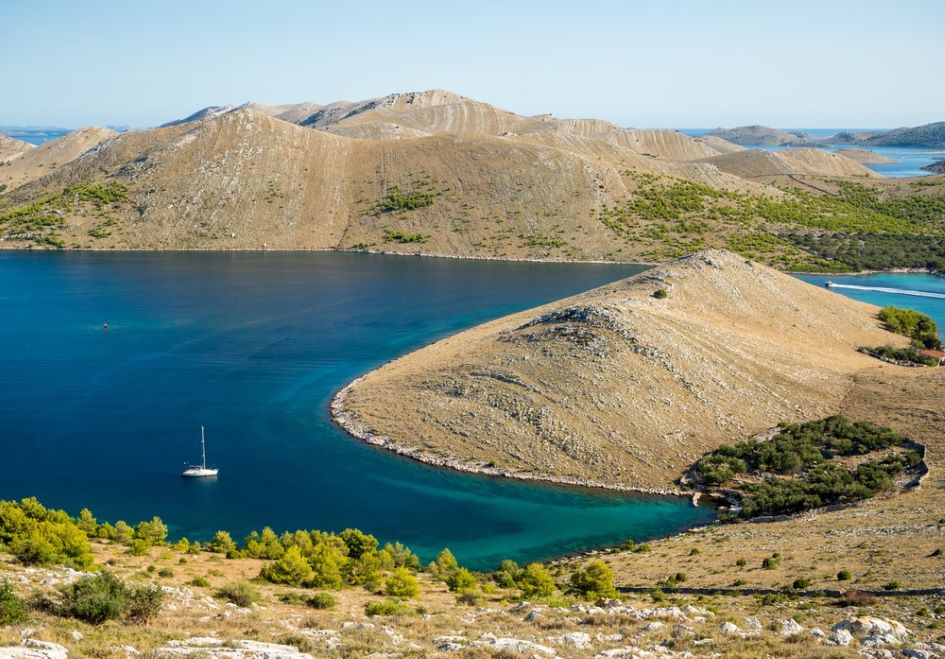
National Park Kornati
Start Your Day Like Locals; Slow Coffee, Then Sail
Croatians take coffee seriously, not the caffeine, but the ritual. Before raising your sails, sit at a small harbor café, order an espresso (kava), and enjoy the quiet rhythm of the morning.
Use that time to check the forecast, chat with locals, or simply watch fishermen mend their nets. It’s a gentle reminder that sailing here isn’t just about movement, it’s about learning to slow down and soak it in.
Eat Ashore Often; Food Is Part of the Journey
Every island has its flavors, and the best meals often come from seaside konobas where the grill is steps from the sea. Order fresh-caught fish, black risotto, or pasta with truffles if you’re near Istria. Pair it with local wines like Pošip or Plavac Mali and you’ll understand why sailors plan their routes by dinner.
Top 5 Traditional Dalmatian Dishes
Many konobas offer “berth-for-dinner” deals, they’ll reserve a mooring if you dine with them. It’s not only convenient, it’s one of the most genuine ways to meet locals.
Respect the Weather; The Adriatic Rewards the Attentive
Croatia’s winds are mostly kind, but they command respect. The Maestral is your friend, a steady afternoon breeze that makes perfect sailing. The Bura can arrive suddenly, bringing powerful gusts from the mountains, while the Jugo carries moisture and waves from the south. Always check the marine forecast before leaving port, and don’t ignore local advice; harbor masters, skippers, and even restaurant owners often know the sea better than any app. Staying in step with their rhythm keeps your trip safe and smooth.
In Short: Sail Slowly, Eat Well, and Let Croatia Unfold
The magic of sailing in Croatia isn’t about rushing from port to port; it’s about anchoring in quiet coves, sharing simple meals, and watching the sun fade into the Adriatic. Take your time, follow the wind, and let the islands set your pace.


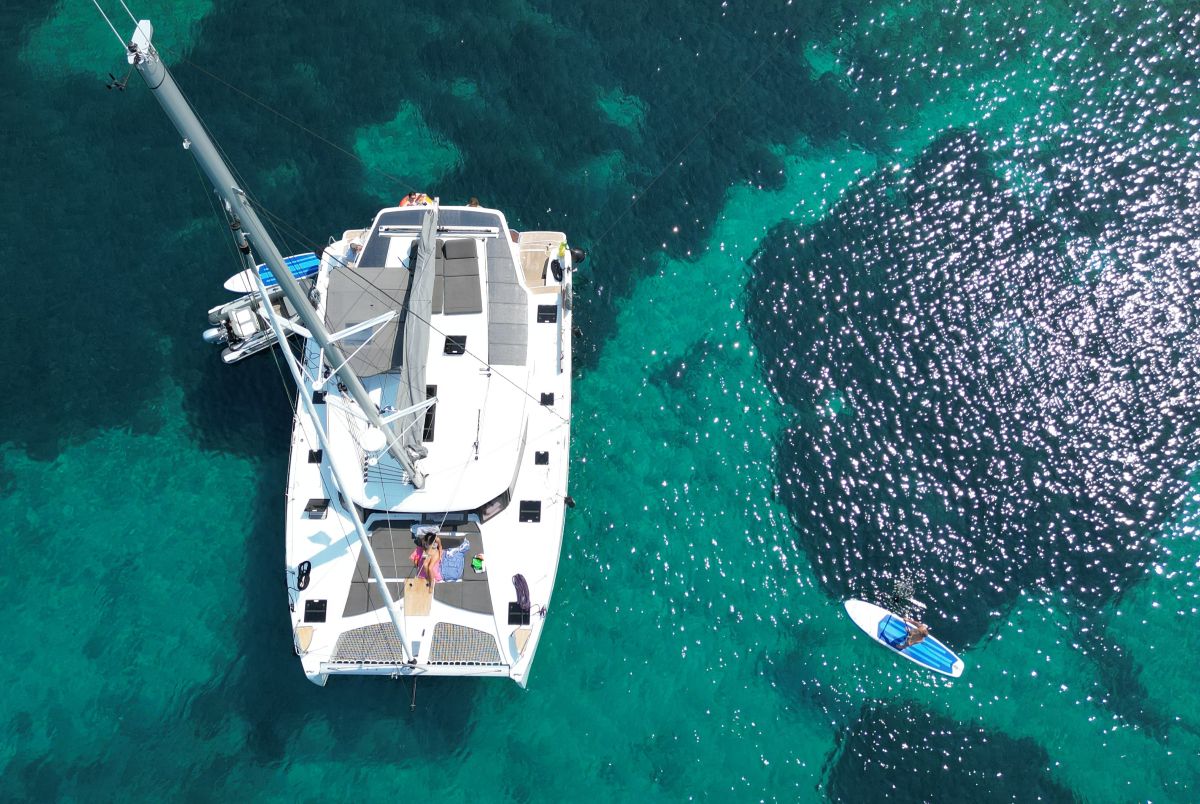
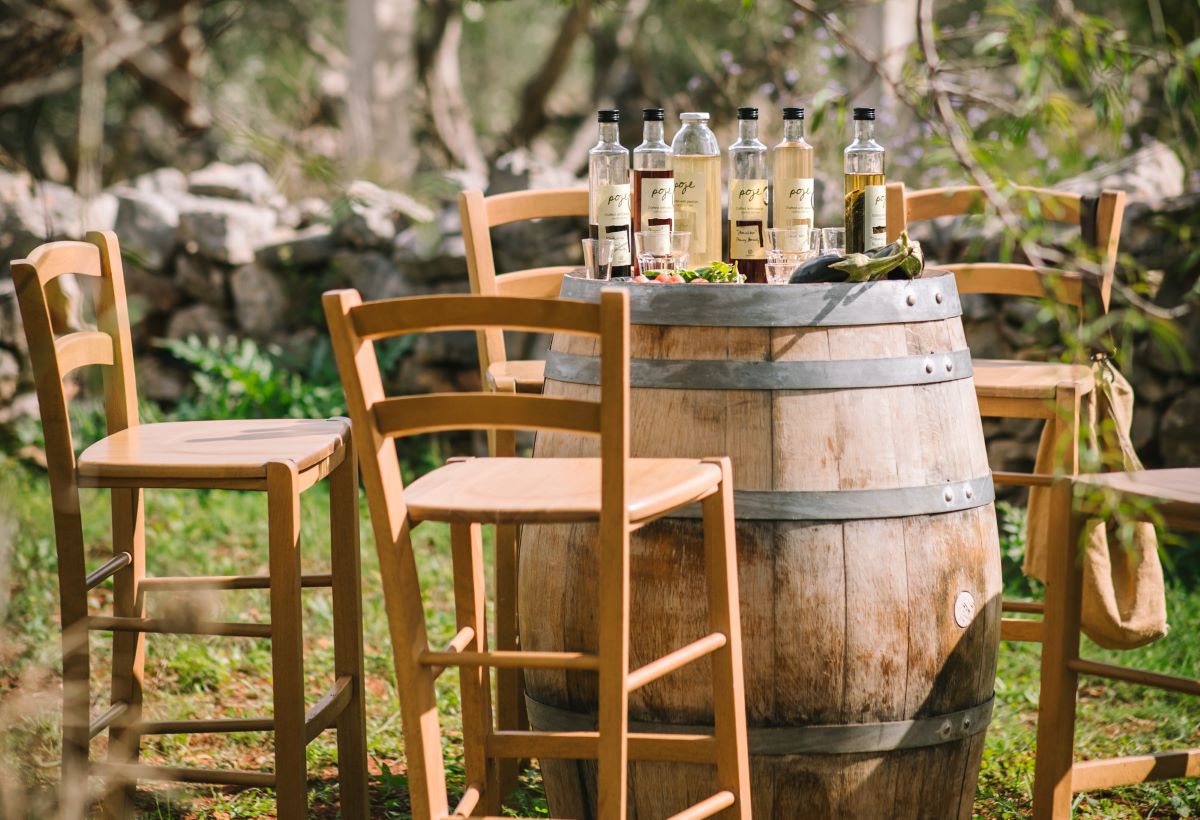


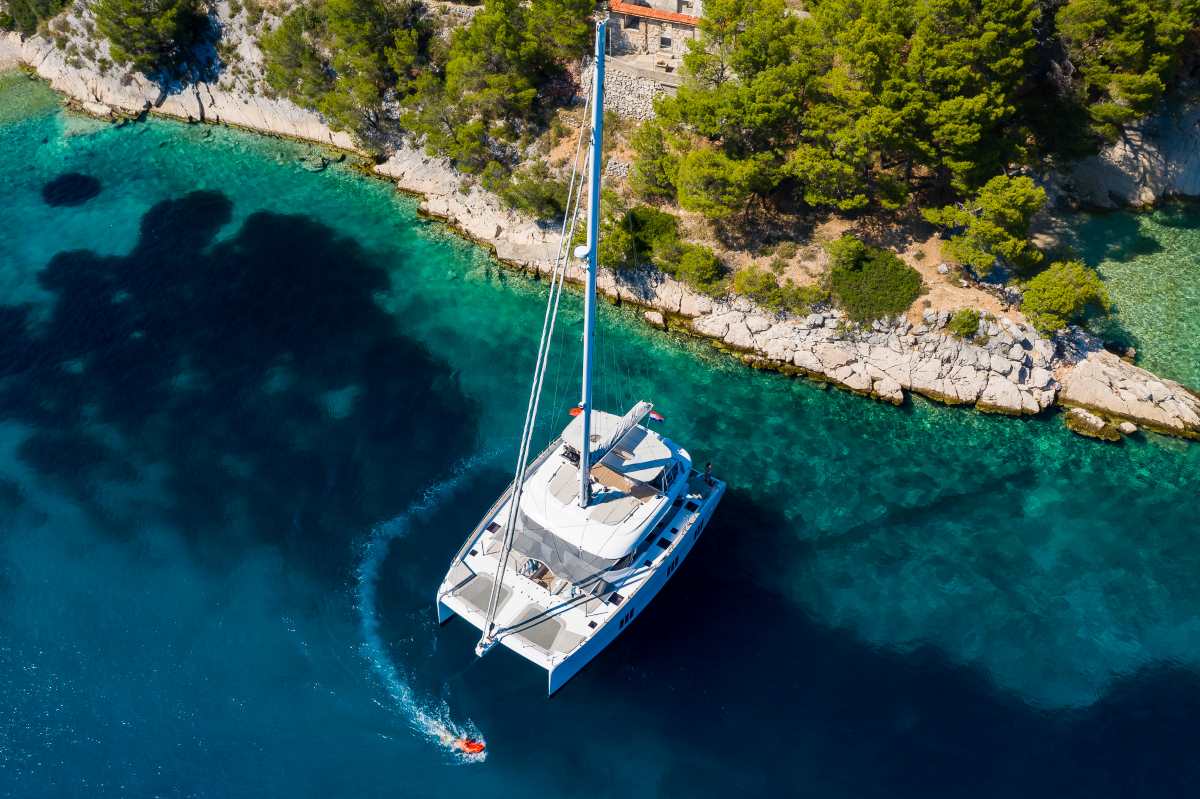
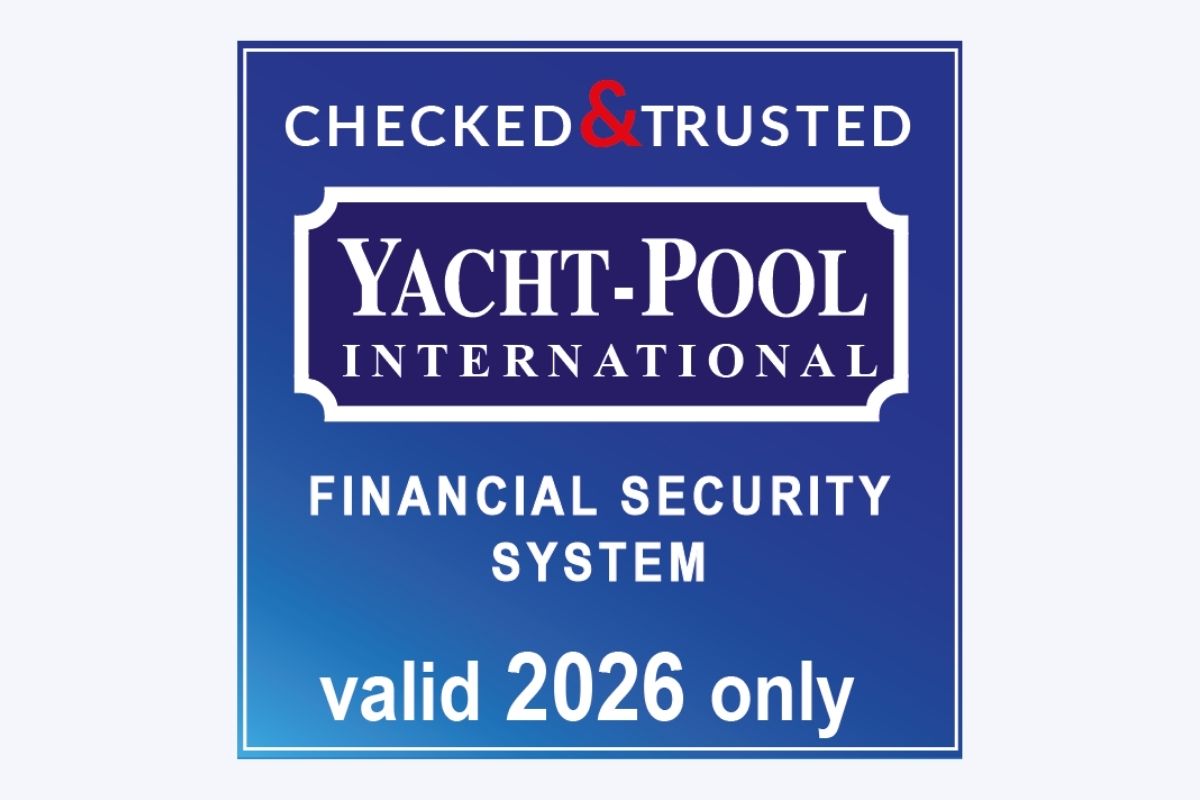
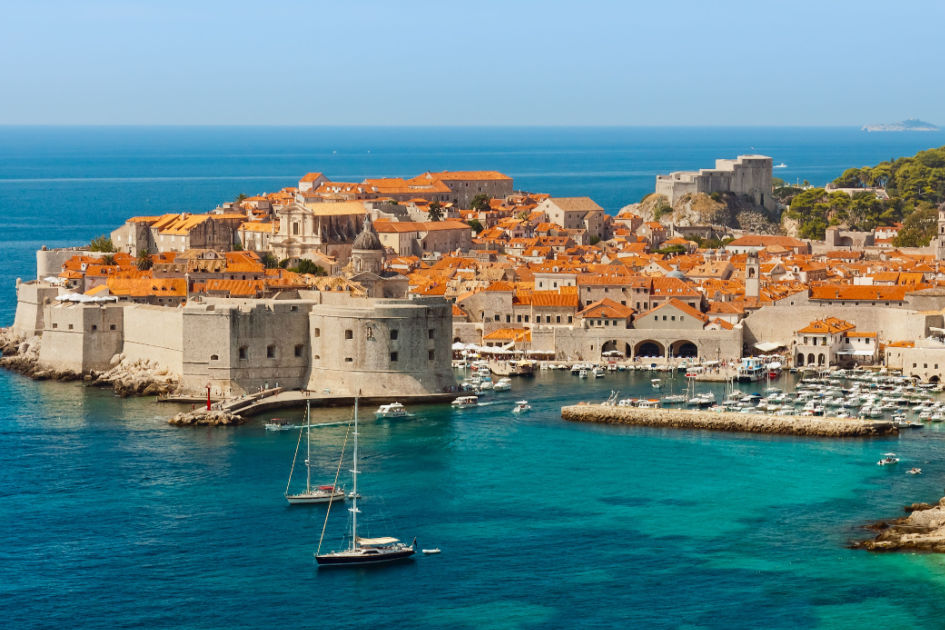
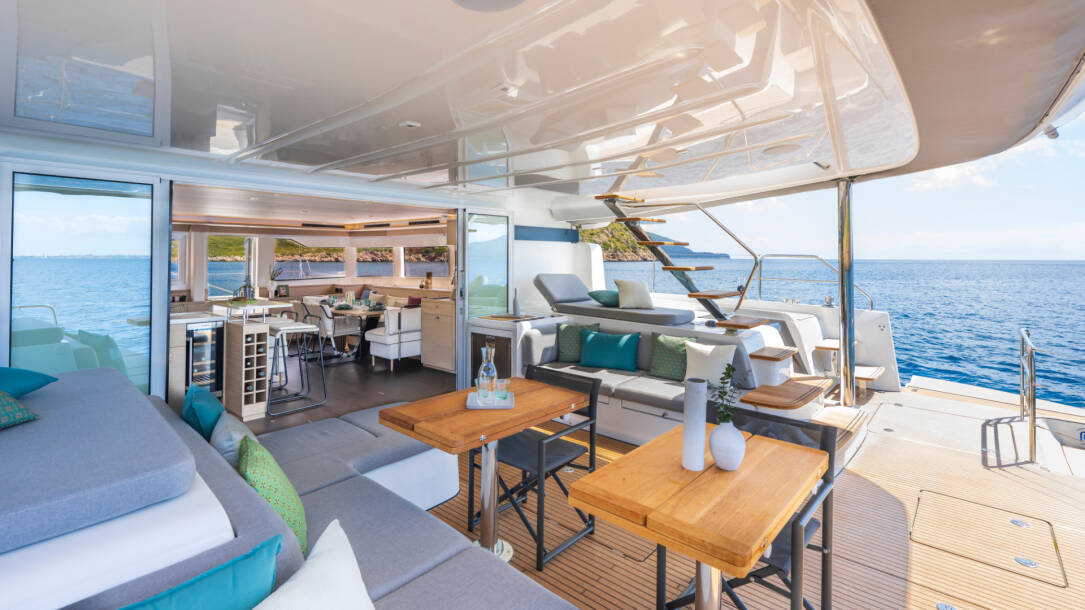
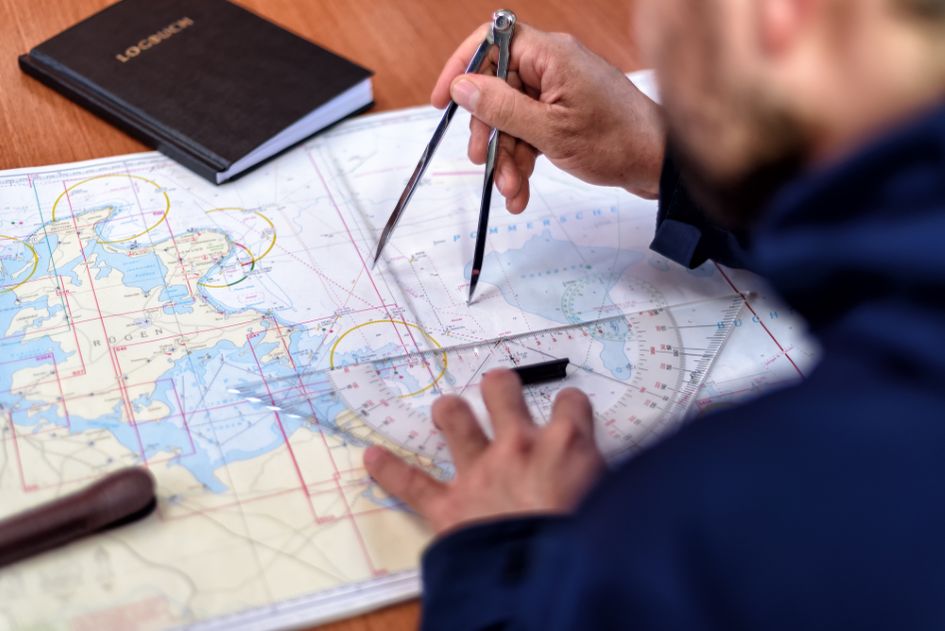
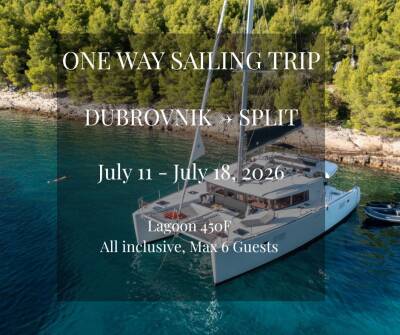
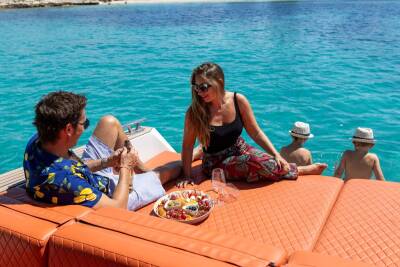
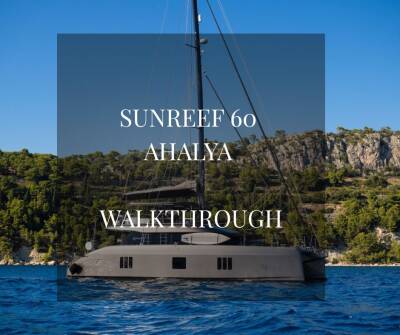
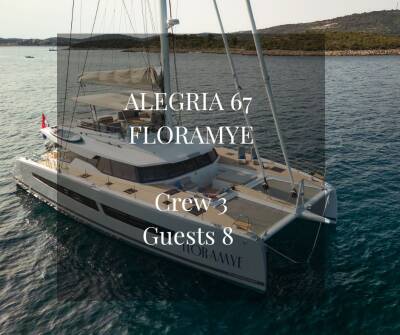
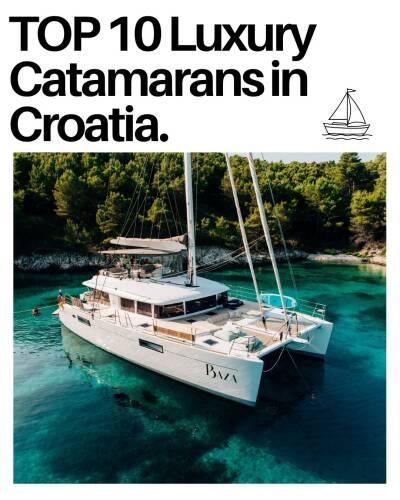
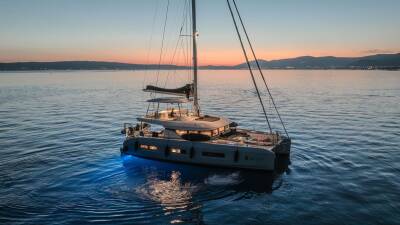
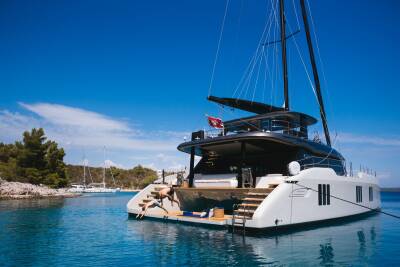
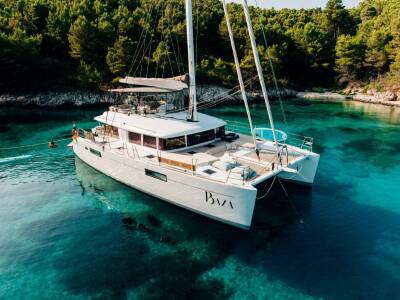
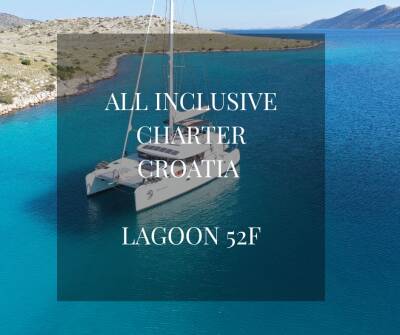

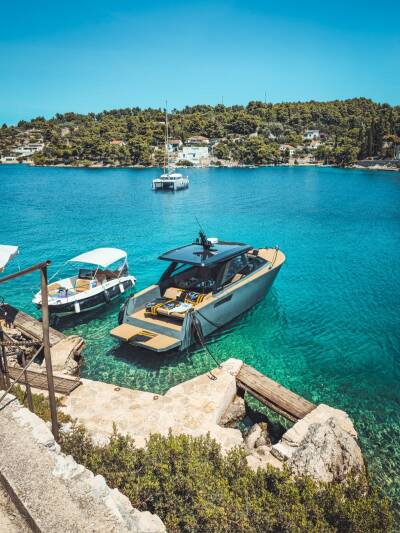
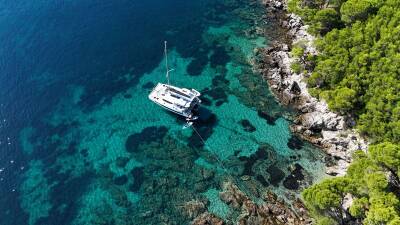

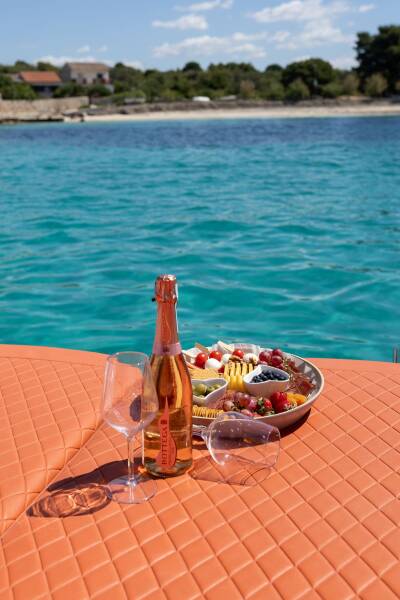
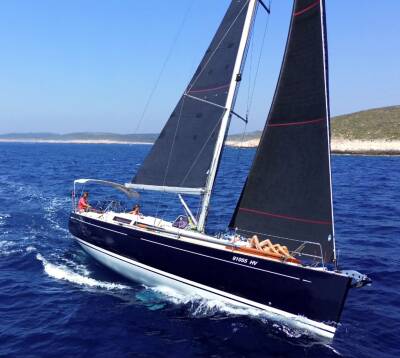
 Give us a call or drop an email, We`ll answer you within 24 hours
Give us a call or drop an email, We`ll answer you within 24 hours